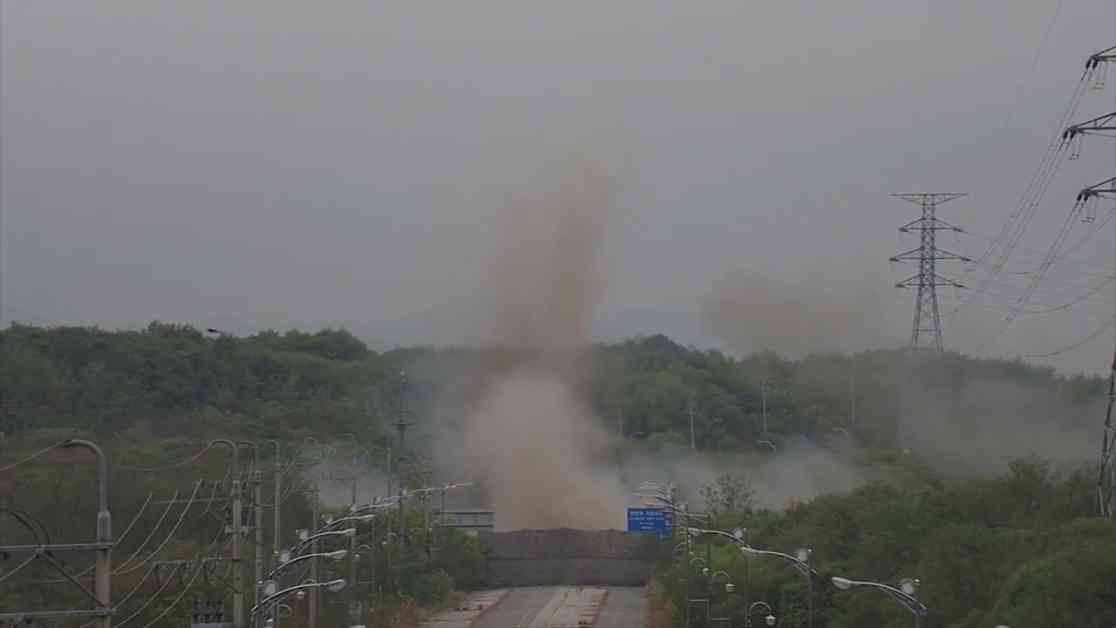North Korea demonstrated its anger towards South Korea by destroying unused road and rail links that once connected the two countries. This symbolic act comes after North Korea accused South Korea of flying drones over its capital, Pyongyang. North Korean leader Kim Jong Un has expressed his intention to sever relations with South Korea and abandon the goal of achieving peaceful Korean unification.
While some observers believe that Kim Jong Un is unlikely to launch a large-scale attack on South Korea due to fear of retaliation from the United States and South Korea, tensions remain high between the two countries. In response to the explosions, South Korea fired warning shots within its borders to bolster its readiness and surveillance posture.
The South Korean government condemned North Korea’s actions as a violation of previous agreements between the two countries. The destruction of the road and rail links, which were built with South Korean assistance, is seen as a move to diminish South Korea’s influence in the region and strengthen Kim Jong Un’s grip on power.
Experts believe that Kim Jong Un’s decision to designate South Korea as the country’s “invariable principal enemy” is aimed at seeking direct dealings with the United States and reducing South Korean cultural influence. North Korea has accused South Korea of infiltrating drones to drop propaganda leaflets over Pyongyang, further escalating tensions between the two countries.
North Korea’s state media reported that Kim Jong Un has laid out tasks related to “immediate military action” and the operation of his war deterrent. The North Korean military has threatened to turn South Korea into “piles of ashes,” raising concerns about the potential for further conflict.
The destruction of the road and rail links, which were built with South Korean materials and equipment, highlights the complex relationship between the two countries. Despite North Korea’s threats and provocative actions, South Korea remains committed to maintaining peace and stability in the region.
As tensions continue to rise, it is essential for both countries to engage in dialogue and find peaceful solutions to their differences. The international community plays a crucial role in supporting efforts to reduce tensions and prevent further escalation of conflict on the Korean Peninsula.


